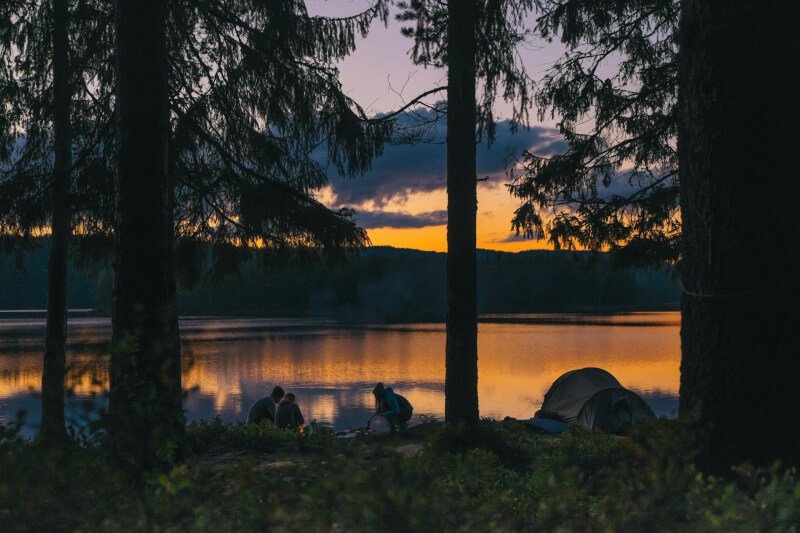Are you ready to embark on a memorable camping adventure? Before you head into the great outdoors, it’s important to ensure you have all the necessary tools and knowledge to maintain proper hygiene. In this article, we will explore the top camping hygiene tips that will not only keep you clean but also help you have a safe and enjoyable experience in nature. From packing essential items to practicing good hygiene practices, let’s discover how you can have a clean adventure while immersed in the beauty of the outdoors.
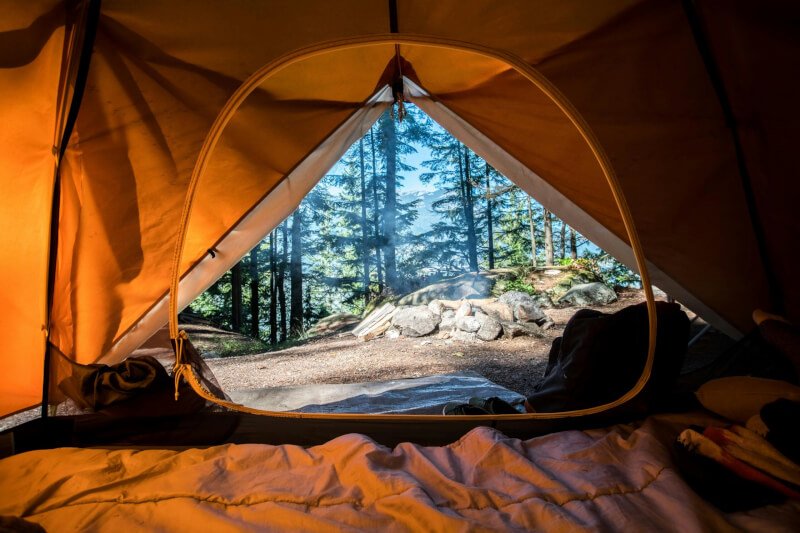
Choosing the Right Campsite
When it comes to choosing the right campsite, there are a few key factors to consider for maintaining good hygiene. First and foremost, you should consider the distance to water sources. It’s important to choose a campsite that is close enough to a water source so that you have easy access for drinking, cooking, and cleaning purposes. However, be mindful not to camp too close to the water’s edge to avoid any potential flooding risks.
In addition to proximity to water, it’s crucial to look for a campsite with good drainage. This will help ensure that rainwater doesn’t pool near your camping area, which could attract insects and create unsanitary conditions. Opt for a spot that is slightly elevated and well-drained, preferably on a slight slope to allow rainwater to flow away from your campsite.
Lastly, it’s vital to check for designated toilet areas when choosing your campsite. Many campsites have established toilet facilities to minimize the impact on the surrounding environment. Using these designated areas not only helps maintain cleanliness but also protects the natural surroundings. Make sure to familiarize yourself with the location of these facilities before setting up camp.
Packing the Essentials
Properly packing the essentials for your camping trip is crucial for maintaining hygiene throughout your adventure. One essential item to bring is biodegradable soap and shampoo. Using biodegradable products minimizes the impact on the environment, ensuring that your camping experience remains eco-friendly. These products are specifically designed to break down naturally and are safe for use near water sources, allowing you to wash dishes, clothes, and yourself without contaminating the surrounding environment.
Another item to consider packing is a portable camping toilet. While some campsites may have established toilet facilities, many remote or wilderness areas do not. Having a portable camping toilet ensures that you can properly dispose of human waste in a sanitary and environmentally friendly manner. Look for a portable toilet that is easy to set up and clean to make your camping experience as comfortable as possible.
Don’t forget to pack hand sanitizer! While it’s important to wash your hands regularly with soap and water, there may be times when access to clean water is limited. Hand sanitizer is a convenient alternative that can help kill bacteria and prevent the spread of germs. It’s especially useful before and after handling food or using the portable camping toilet.
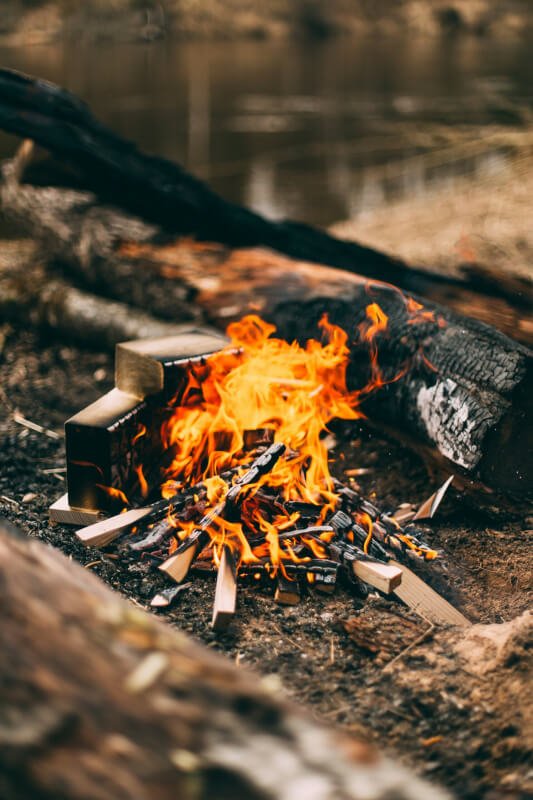
Personal Hygiene
Maintaining personal hygiene is essential for your comfort and health while camping. One of the most important habits to adopt is regular handwashing. Even when you’re in the great outdoors, it’s crucial to wash your hands thoroughly with soap and water before handling food, after using the toilet, and whenever they become visibly dirty. Proper hand hygiene helps prevent the spread of germs and minimizes the risk of illnesses.
When it comes to brushing your teeth, it’s important to do so away from water sources. Choose a spot at least 200 feet away from any lakes, rivers, or streams, to avoid contaminating the water with toothpaste or other oral hygiene products. Instead, bring a small portable basin to use for brushing your teeth and dispose of any waste properly. This practice ensures that you maintain good hygiene while also preserving the integrity of the water sources around you.
Consider using a handkerchief instead of tissue paper while camping. Handkerchiefs are reusable and can be easily washed with your other camping gear. By using a handkerchief, you reduce the amount of waste you generate during your trip and lessen your impact on the environment.
Managing Waste
Proper waste management is crucial to ensure cleanliness during your camping adventure. Firstly, dispose of trash properly by using designated garbage bins or packing it out with you. Leaving trash behind not only creates an eyesore for future campers but also attracts unwanted animals and insects. By packing out your trash, you help preserve the beauty of nature and maintain a clean campsite for yourself and others to enjoy.
When it comes to human waste, it’s important to follow the principles of Leave No Trace. Burying human waste in a cat hole is one of the most effective ways to handle it responsibly. Choose a spot at least 200 feet away from any water source and dig a hole 6 to 8 inches deep. After using the cat hole, cover it with soil, and disguise it with natural materials. This practice helps prevent the contamination of water sources and keeps the environment clean and sanitary.
For female campers, remember to pack out feminine hygiene products. These products are not biodegradable and can have a negative impact on the environment if left behind. Bring a small sealable bag to store used feminine hygiene products and dispose of them in the appropriate garbage receptacles.
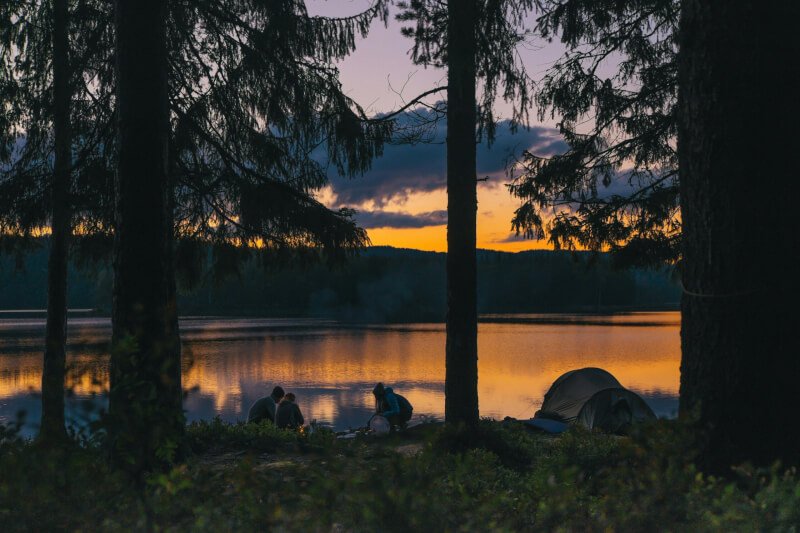
Water Safety
Ensuring water safety is crucial for maintaining good hygiene while camping. Treat water from natural sources before consuming it to eliminate any potential contaminants. Boiling water is one of the most effective methods to make it safe to drink. Bring your water to a rolling boil for at least one minute to kill any harmful bacteria or parasites that may be present. Once the water has cooled, it is safe to drink or use for cooking.
Another option for water treatment is to use a water filter or purifier. These devices remove bacteria, protozoa, and debris from the water, making it safe for consumption. It’s important to carefully read and follow the manufacturer’s instructions to ensure your water is properly filtered or purified.
Keeping your water containers clean is also imperative for water safety. Regularly wash out your water bottles or containers with hot, soapy water, and rinse thoroughly to remove any residue or bacteria that may be present. Additionally, ensure that you properly close and seal your water containers to prevent any contamination from entering.
Food Hygiene
Proper food hygiene is essential for preventing illnesses and maintaining good health during your camping trip. Keep your food stored properly to prevent spoilage and minimize the risk of attracting animals and insects. Use airtight containers or coolers to store perishable items and store them in a shaded area to maintain a consistent temperature.
When handling food, always use separate cutting boards for raw and cooked food to prevent cross-contamination. Raw meat, poultry, or fish should be kept separate from other food items to avoid the spread of harmful bacteria. Wash cutting boards and utensils with hot, soapy water after each use to eliminate any potential contaminants.
After preparing and enjoying your meals, it’s important to wash your cooking utensils properly. Use hot, soapy water and scrub all utensils thoroughly to remove any food particles or bacteria. Rinse them thoroughly to ensure there is no soap residue left behind. If possible, allow your utensils to air dry in a clean area to prevent any potential cross-contamination.
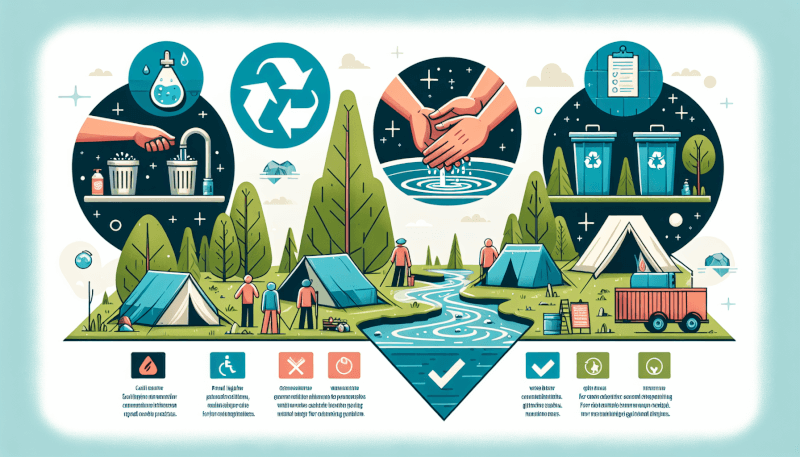
Dealing with Insects
Insects are an inevitable part of camping, but there are ways to minimize their presence and maintain a clean campsite. Using insect repellent on exposed skin is essential to prevent insect bites and potential diseases carried by insects. Look for a repellent that contains DEET or other recommended active ingredients to provide effective protection.
Keep your campsite clean and free of food scraps to deter insects from gathering near your camping area. Clean up any spills or food debris immediately to avoid attracting unwanted pests. Dispose of food waste in designated trash bags or containers and make sure they are securely sealed to prevent any odors from attracting insects.
Wearing long sleeves and pants in the evening is another effective way to protect yourself from insects. Mosquitoes, ticks, and other biting insects are most active during dusk and dawn, so covering up can provide an additional layer of defense. Consider treating your clothing with insect repellent or utilizing clothing items specifically designed to repel insects.
Keeping Clean
Staying clean while camping doesn’t have to be challenging. Taking quick sponge baths can help you feel refreshed throughout your camping trip. Use a small basin or portable camping shower filled with warm water and biodegradable soap to wash your face, armpits, and other areas that may need attention. Remember to dispose of the water properly and minimize your impact on the environment.
Changing into clean clothes regularly is another great way to maintain personal hygiene while camping. Wearing the same clothes for an extended period of time can lead to unpleasant odor and discomfort. Pack enough clean clothes to last the duration of your trip and change into fresh attire as needed. Additionally, consider bringing a small bag to store your dirty clothes separately from your clean ones to avoid cross-contamination.
Keeping your sleeping area clean is essential for a comfortable camping experience. Make sure to shake out your sleeping bag and air it out regularly to prevent the accumulation of dirt, sweat, and odors. If necessary, bring a small brush or dustpan to remove any debris or dirt from your sleeping area. By maintaining a clean sleeping environment, you can ensure a good night’s rest and minimize the potential for any hygiene-related issues.
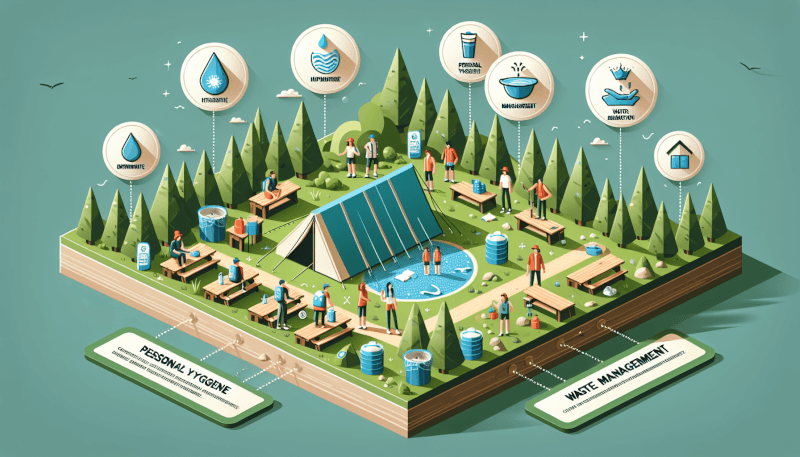
Proper Dishwashing
After enjoying a delicious meal, it’s important to properly wash your dishes to prevent the spread of bacteria and maintain a clean campsite. Start by scraping any food particles into a trash bag to avoid clogging your sinks or polluting the surrounding environment. Then, wash your dishes with hot, soapy water using a sponge or scrub brush. Pay close attention to removing any grease or residue from the dishes.
Once your dishes are clean, rinse them thoroughly with clean water to remove any soap residue. If possible, allow your dishes to air dry in a clean area to prevent any potential contamination from towels or other surfaces. Proper dishwashing ensures that you have clean and safe utensils for your next meal while maintaining a hygienic camping environment.
Maintaining Personal Space
Respecting your fellow campers’ privacy and space is important for maintaining a friendly and harmonious camping environment. Keep noise levels to a minimum, especially during quiet hours or late at night. Whether you are chatting with your camping companions or playing music, be mindful of the noise levels and consider the impact on others around you.
Using designated toilet and washing areas is essential for maintaining personal space and hygiene. These designated areas are typically established to minimize the impact on the natural surroundings and ensure everyone has access to sanitary facilities. Follow the campground or park regulations regarding toilet and washing facilities, and be considerate of others waiting to use these areas.
By following these camping hygiene tips, you can ensure a clean and enjoyable adventure in the great outdoors. Practicing good hygiene not only promotes your own well-being but also helps preserve the beauty of nature for future generations to enjoy. So remember, when preparing for your camping trip, choose the right campsite, pack the essentials, maintain personal hygiene, manage waste responsibly, ensure water safety, prioritize food hygiene, control insects, keep clean, wash dishes properly, and respect personal space. Happy camping!

